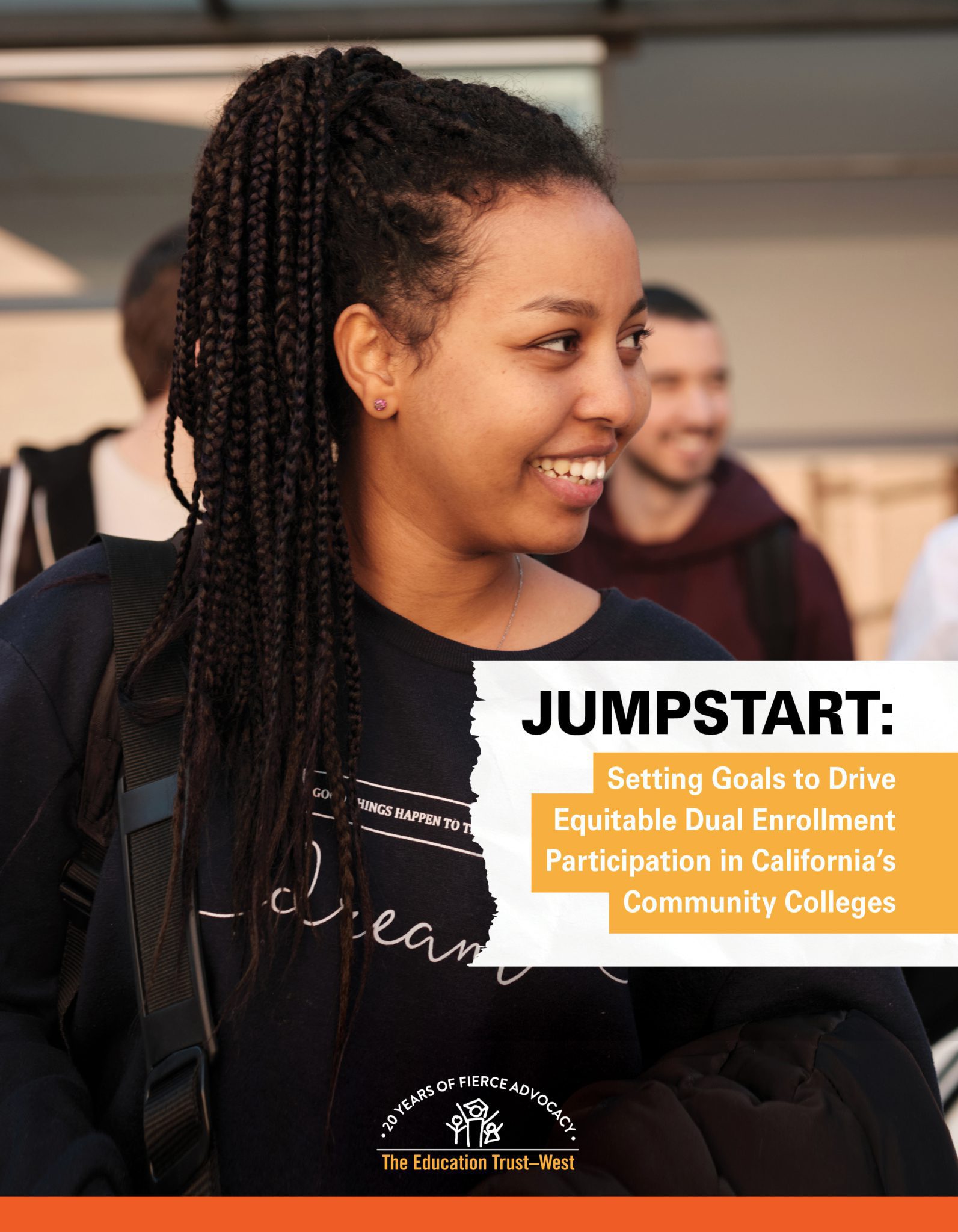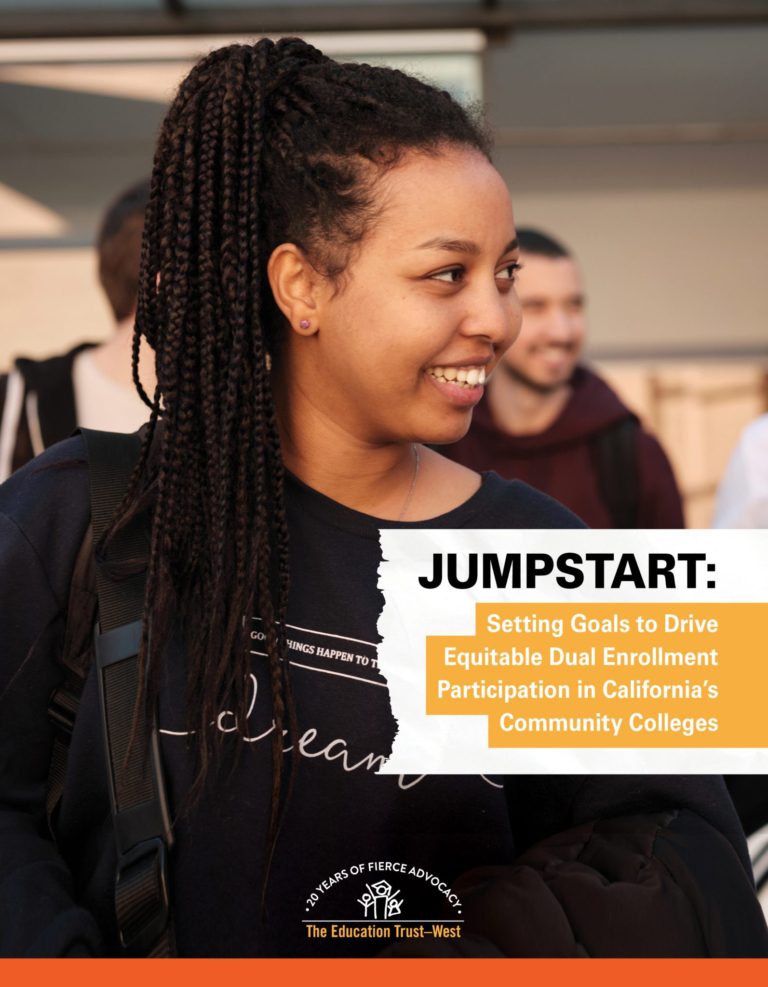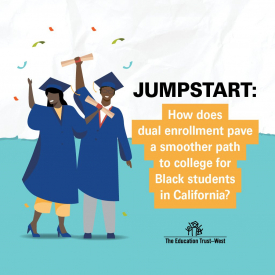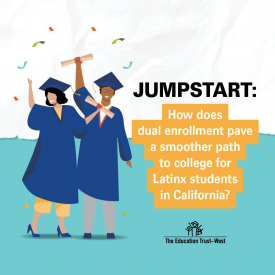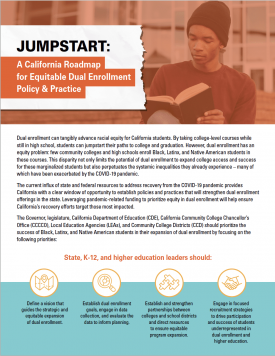Despite the major disruption the pandemic has caused for students, education leaders have an opportunity to re-imagine how strategies, like dual enrollment, can transform our systems and students’ lives. In Jumpstart: Setting Goals to Drive Equitable Dual Enrollment Participation in California’s Community Colleges, we analyze data from California’s community colleges to see if they are equitably serving Black, Native, and Latinx students through dual enrollment – and we find they are not yet doing so. This inequitable participation in dual enrollment is not just a challenge for community colleges to solve, this is also an opportunity for K-12 local education leaders to work to provide their students with more opportunities to graduate high school prepared to thrive in higher education.
In Jumpstart, we have shared a policy and practice agenda that we believe, both, K-12 and higher education leaders can and should implement. We take a look at the current landscape of dual enrollment to see who is participating in dual enrollment, especially Black, Latinx, and Native students. Fortunately, there are Community College districts that are equitably serving those students, and we take a closer look at their numbers.
This report was updated on May 31, 2022. Our overall findings are consistent with the initial release. However, Community College District’s equity scores have changed since the initial assignment. This update was necessary due to an update to the underlying CCC Data Mart source data, as well as a bug in our computation that is now resolved.
Infographics
How does dual enrollment pave a smoother path to college for Black and Latinx Students in California?
February 2023
Dual Enrollment Resources for Students and Families
March 2023
Dual enrollment courses can be an impactful way to accelerate college coursework and obtain college credits for some high school students, however, explaining their benefits can be challenging. Because of this, we’re sharing a new set of resources geared toward students, families, and district leaders. The resources below guide students, families, and advocates in understanding, accessing, and expanding dual enrollment opportunities in their communities.

Dual enrollment is an opportunity that allows high school students to take college courses for credit, and has the potential to be a powerful lever for the success of California’s high school and postsecondary students.
Depending on the program, dual enrollment courses can be offered at high schools, college campuses, or online.
In-depth data from the Jumpstart report:
Our Recommendations for Jumpstarting Dual Enrollment in California:
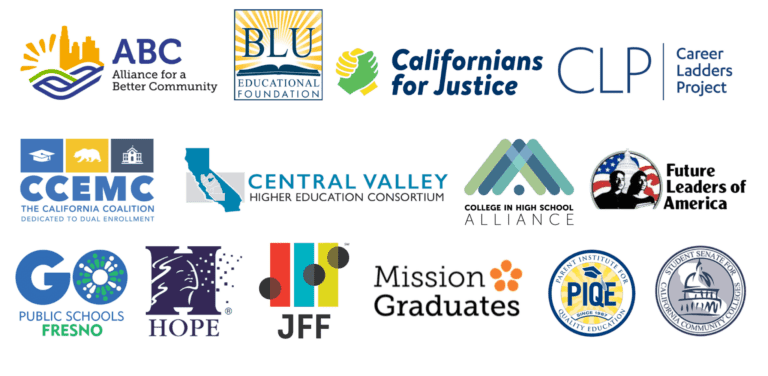
Join the growing movement of organizations and equity advocates who endorse the Jumpstart recommendations:
Dual Enrollment Coalition of California (DECC)
We are proud to be a part of the Dual Enrollment Coalition of California (DECC). By working together, DECC advances a shared vision of high-quality dual enrollment for equity, in which educators believe in the capacity of all students to succeed. We uplift high-impact practices and promote high-quality, equitable, dual enrollment policy and practice throughout California.
The DECC steering committee is composed of the following organizations: California Association of Black School Educators, California Coalition of Early and Middle Colleges, Career Ladders Project, Central Valley Higher Education Consortium, and The Education Trust—West.
To find out more about dual enrollment professional learning opportunities please sign up for our mailing list here.

